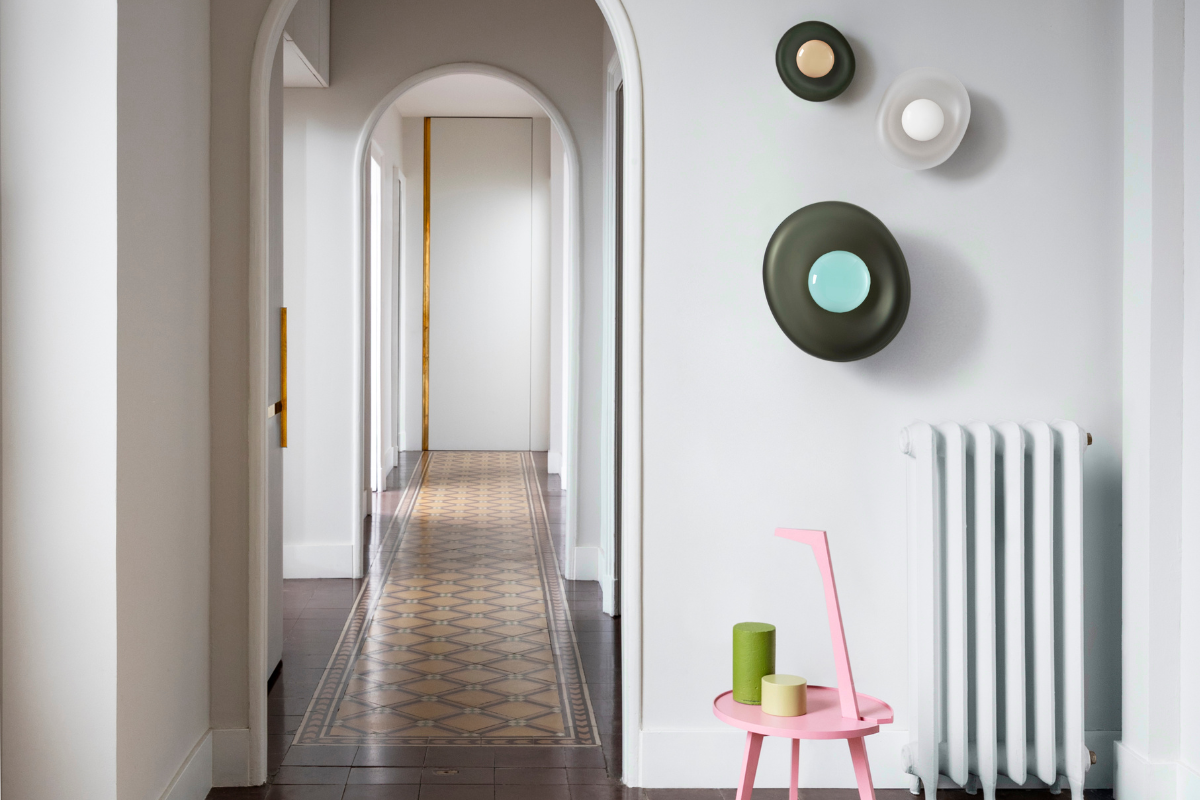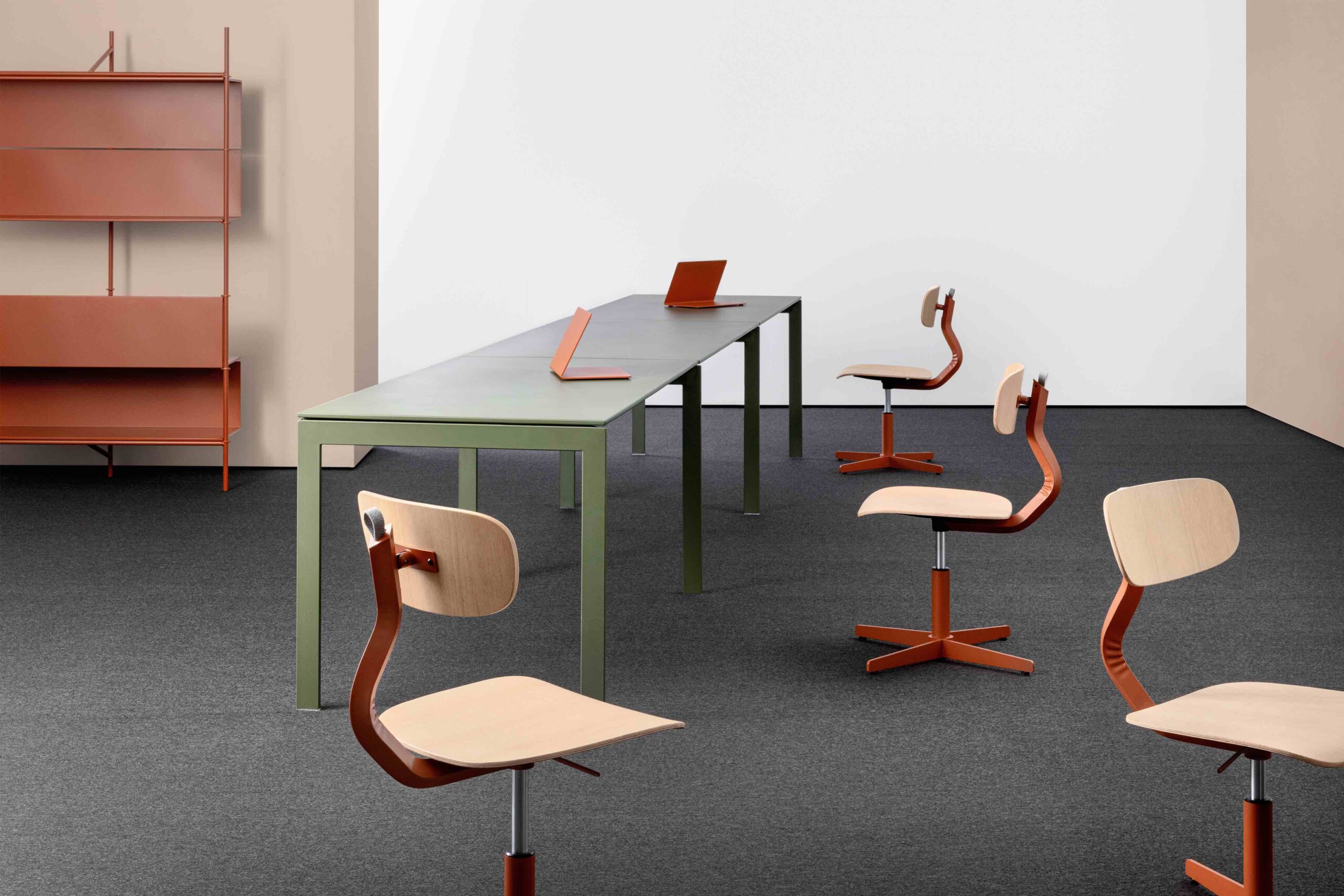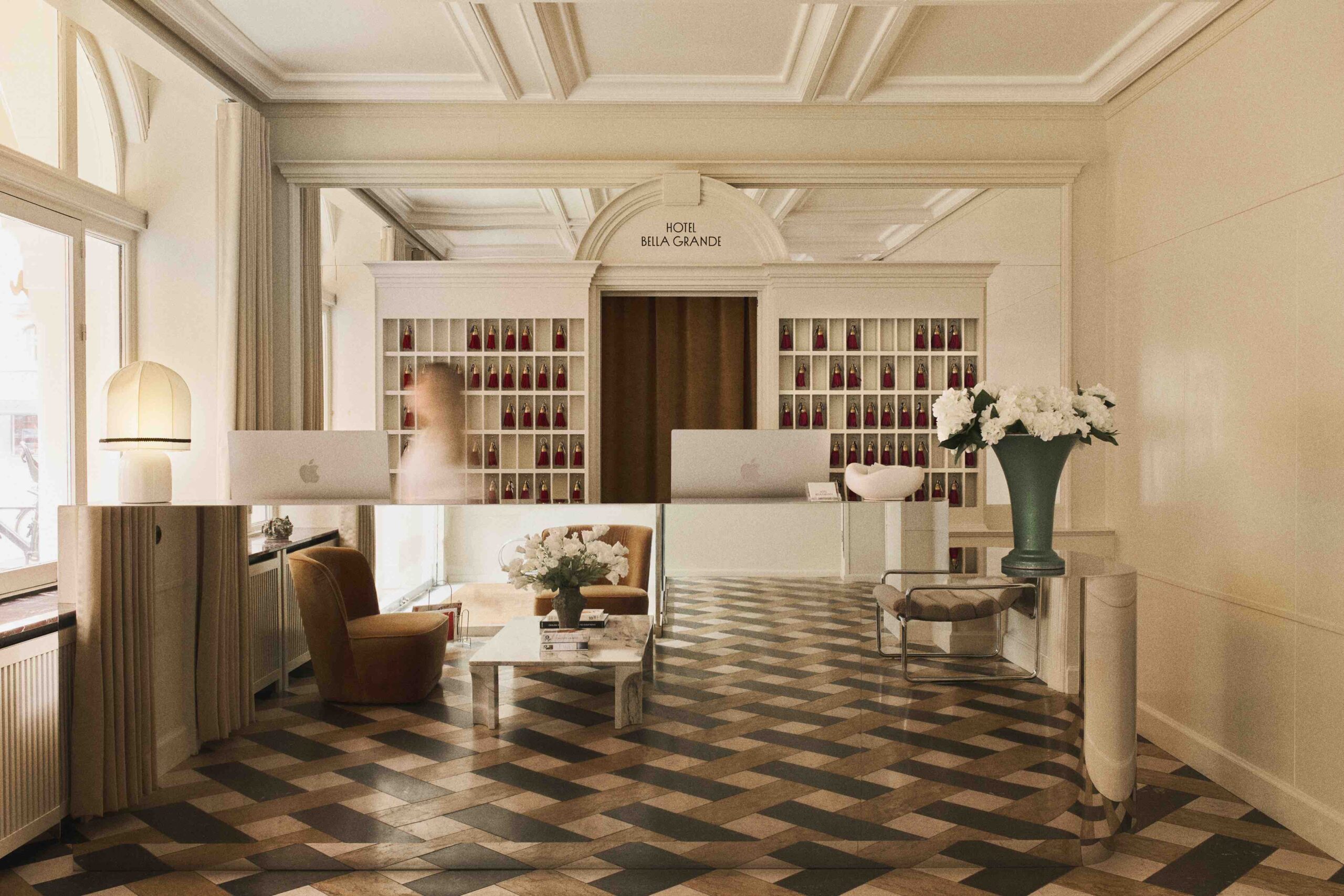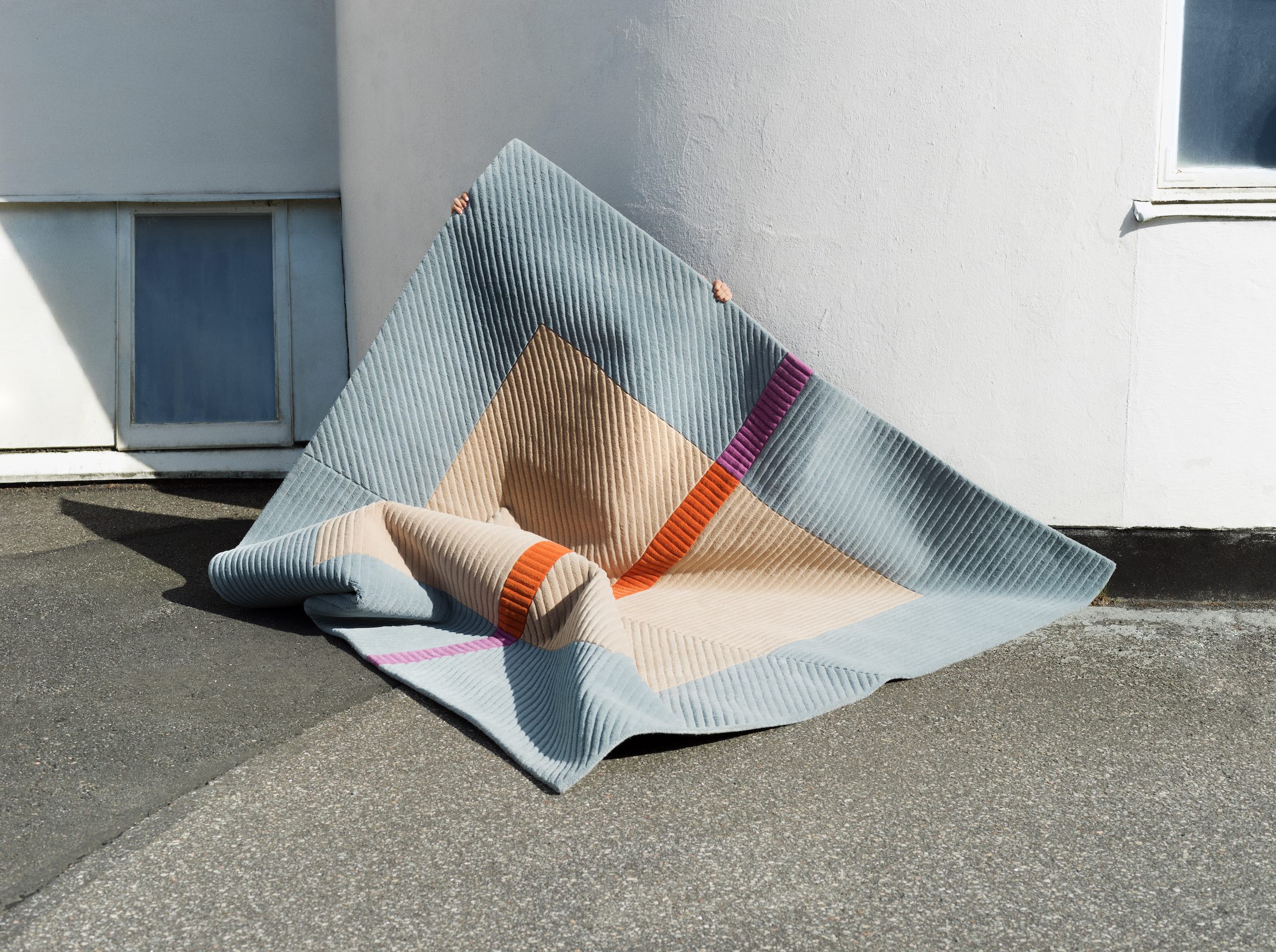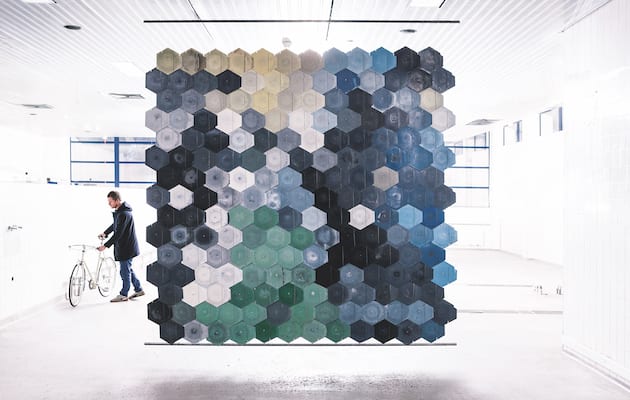 |||
|||
The idea of guilt in conjunction with single-use plastics is an easy one to grasp. A huge rise in public awareness of the plastic problem stems from the images of bottles, netting and other debris washed up on shore, turtles injured by plastic straws and birds choked to death on plastic bags. In the UK, the government plans to ban certain single-use plastics in 2020 and the EU will follow in 2021. At this year’s London Design Festival, gallerist and curator Rossana Orlandi flips the problem and asks – what does guilt-free plastic look like?
At the Istituto Marangoni in the Shoreditch Design Triangle, Orlandiand Mark Anderson, Design Director of Education at IM Milan, have curated the Guiltless Plastic exhibition, an extension of a 2017 project in which the design school and Orlandi challenged makers and creators to give new life to existing plastics. This turned into the Ro Plastic Prize, which in April held its second edition in Milan, rewarding designers who create sustainable works in recycled and recyclable plastics.
 Alexander Schul’s Substantial Furniture line
Alexander Schul’s Substantial Furniture line
For LDF, Orlandi has selected some of the entrants displayed in Milan to give a selection of the most interesting designs a wider audience. Among them is the Substantial furniture line created by Alexander Schul, a winner of the design category of the Ro Plastic Prize. His graduation project from Maastricht Academy of Fine Arts and Design uses recycled high-impact polystyrene from packaging to create a collection of furniture with long-lasting appeal.
“The aim was to find a way to transform plastic waste into a valuable good,” Schul said. He used a compressed sheet material for its efficiency and ability to recycle plastic without requiring costly sorting processes. He used the thermoformed sheet plastic to guide the design, to keep the form “pure and essential”, and incorporated only steel screws to allow disassembly for transportation. The final design has a speckled appearance, almost like marble or terrazzo, and is easy to imagine in a garden or kitchen space.
 Sanne Schuurman’s Recycled Plastics in Process
Sanne Schuurman’s Recycled Plastics in Process
The exhibition provides plenty of evidence that recycled plastics can be aesthetically pleasing, with Federica Cammarota’s rocking bin made of recycled acrylic and Bailey Allan Fontaine’s polyethylene lamp two of the standout examples.
Equally, the clever uses for recycled plastics show that the material could provide unexpected solutions to existing problems – designer Joseph Andrè Szall showcases spherical speakers created from industrial car waste, a material that provides acoustic benefits over virgin plastic and mouldable qualities that wood, the traditional material for good quality speakers, does not have, while Sanne Schuurman uses contaminated plastics to create a recycled, recyclable board material for use in construction.
“Our contribution to LDF seeks to bring the best of Salone del Mobile debate and thinking,” says Charlotte Gorse, director of the London Istituto Marangoni. To kick-start that debate and get people talking about the concept of ‘guiltless plastic’, Orlandi will open the exhibition in conversation at 11am.
Guiltless Plastic ran from 19-22 September at Istituto Marangoni London. There will be another Ro Plastic Prize in 2020.

